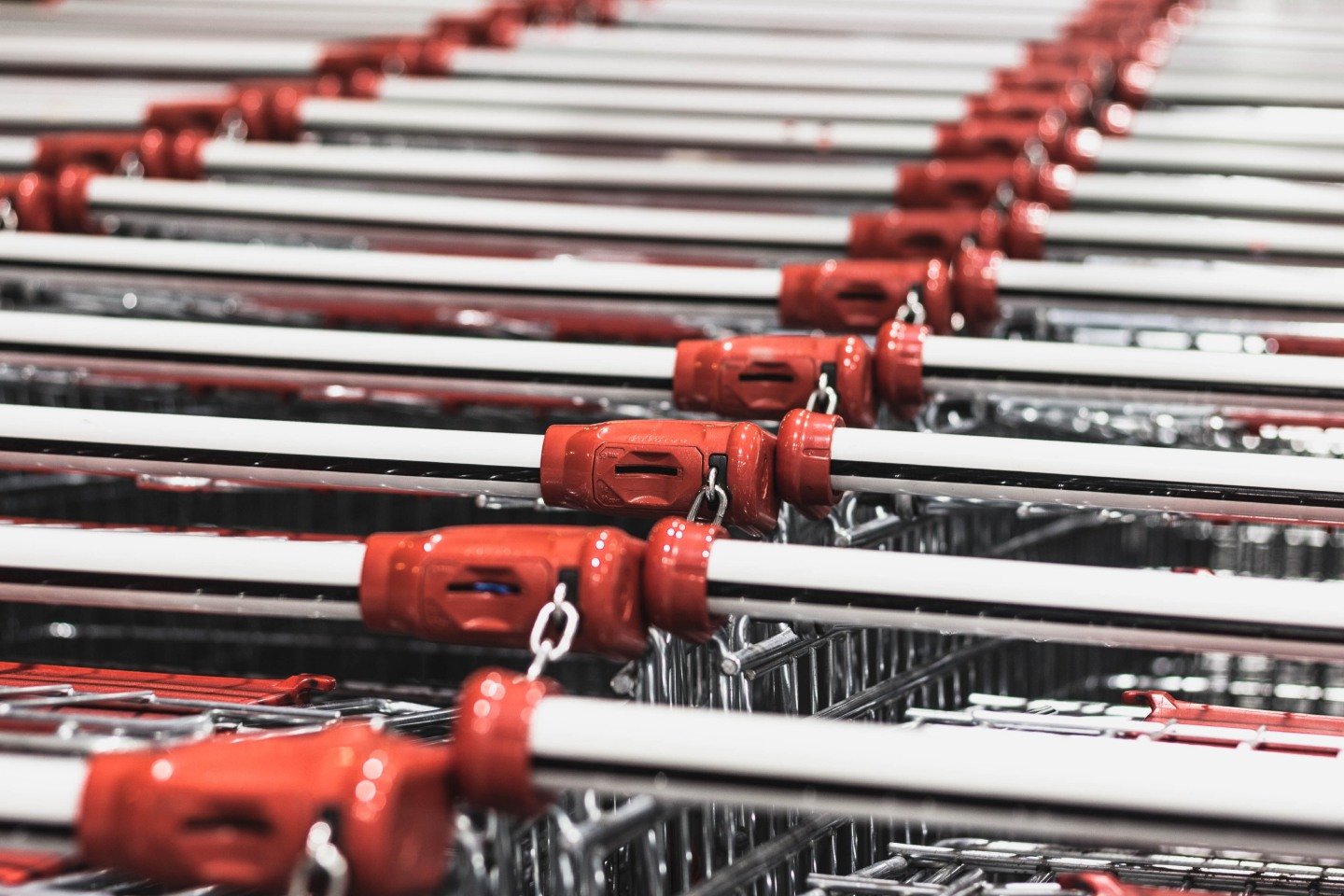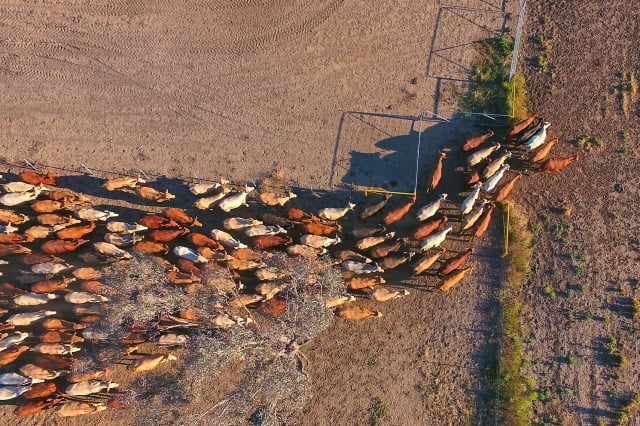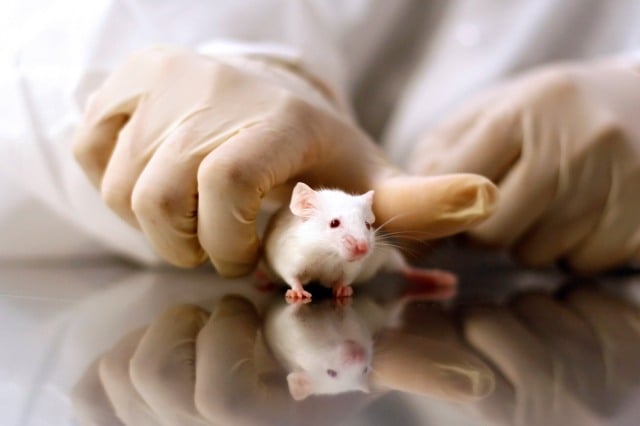Here’s why our forests are being cleared
It’s hard to believe the East Coast of Australia finds itself in the same company as regions infamous for forest clearing like the Amazon, Congo, Central and East Africa, the Mekong, Sumatra and Borneo – but it does.
Australia’s forests are being cleared so fast that the East Coast has been listed among the top 24 deforestation fronts in the world1. Estimates suggest2 the current rate of deforestation in this region equates to a large football field-sized area of forest and bushland every two minutes.
Why all the forest clearing?
It’s not just to make way for new homes or to source timber. Most of the land clearing is actually directly linked to meat consumption.
The number one reason for forest clearing in Australia is for new livestock pasture3. In other words, we are clearing our forests to be able to put more burgers and steaks on our dining room tables.
How much beef can Aussies eat you ask? Well, a lot apparently. We are among the largest consumers of beef globally (alongside the US, Brazil and Argentina4). We also produce beef for export. In fact, we have recently overtaken the United States for beef exports and rank only behind Brazil as the second largest exporter of beef in the world5.
Does it matter?
So what if we’re clearing land to create more pastures? At Australian Ethical, we think it matters.
Clearing native vegetation puts little critters as well as our unique flora at risk – land clearing for agriculture has accelerated plant species and wildlife extinctions and is a significant driver of the nature crises6. Australia is number one in the world for mammal extinctions7. To date, we have lost 67 wildlife species and 37 plant species8. These species are now extinct, and never coming back.
There’s a direct link between bush and forest clearing and species endangerment – we saw this in Queensland between 2015 and 2019 when almost 500,000 hectares of federally mapped ‘likely-to-occur' koala habitat was estimated to have been bulldozed for beef production9. Koalas are now listed as endangered in QLD, NSW and ACT10.

We have been engaging with both Coles and Woolworths on deforestation issues in Australia, as well as the banks who lend to farmers.
People powered advocacy movements can have an important impact – starting with changing our personal habits, getting informed, talking to your friends and family, and looking for ways to widen your circle of influence.
What factors are at play?
Supermarkets are major buyers and sellers of beef, and have a huge influence over what food we buy and our food supply chains. This is especially true in Australia where the two main supermarket chains (Woolworths and Coles) dominate the food retail market.
Fast food companies also play a key role, for example McDonald’s reported in 2022 that 64 million kilograms of Australian beef was purchased11 for its restaurants. We also think governments could do more to help promote a transition to more sustainable food systems.
We have some handy suggestions for how you can eat more sustainably and ways you can get your voice heard in the ‘how to’ blog in this series.
People powered advocacy movements can have an important impact – starting with changing our personal habits, getting informed, talking to your friends and family, and looking for ways to widen your circle of influence.
What are we doing about it?
At Australian Ethical, we look for ways to use our privileged position as an investor on behalf of more than 100 thousand Australians to bring about real-world change.
Both banks and supermarkets have the power to set standards for producers they lend to and buy from, and they also have the power to incentivise good practices. These institutions have a major influence on beef supply chains and deforestation in Australia.
We have been engaging with both Coles and Woolworths on deforestation issues in Australia, as well as with the banks who lend to farmers. We aim to encourage these companies to set no deforestation commitments, and in the case of supermarkets, support the transition to more plant-based diets.
You can read more about what we’re doing in our latest stewardship report.
This year, we were really encouraged to see Woolworths introduce a no deforestation commitment for its fresh beef supply chains. This was a big win, and we are proud of the part we have played alongside other investor groups and NGOs. We continue to engage with Coles to encourage them to make a similar commitment.
We do not invest in food producers that have more than 10% of revenue from animal agriculture and we do not invest in food manufacturers/processors (including fast food companies) where animal ingredients make up more than 33% of their revenue (we also look at things like healthy/nutritious food and environmental commitments). We also think carefully about where we invest in the food sector, and expect retailers to be taking genuine action to mitigate negative impacts on people, planet and animals, which could include deforestation-free beef.
You can read more about the revenue thresholds we use to restrict investment in the food sector and retail sector in our Ethical Guide.
1 deforestation_fronts___drivers_and_responses_in_a_changing_world___full_report_1.pdf (panda.org)
2 Report: Deforestation Crisis on Their Watch - Greenpeace Australia Pacific
3 deforestation_fronts_factsheet___eastern_australia.pdf
4 Per capita meat consumption by type, 2021
5 Australia’s position in the global beef trade | Meat & Livestock Australia (mla.com.au)
6 https://www.unep.org/news-and-stories/story/five-drivers-nature-crisis
8 EPBC Act List of Threatened Fauna & EPBC Act List of Threatened Flora
9 https://www.wilderness.org.au/images/resources/DeforestationReport2022.pdf




